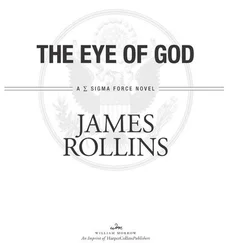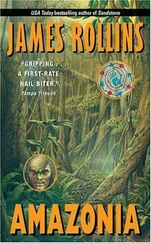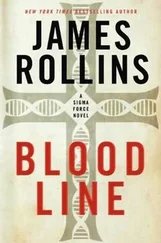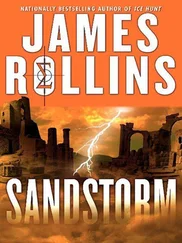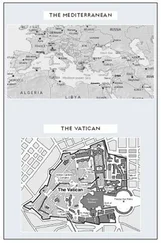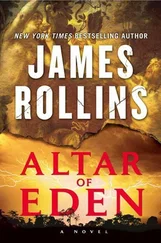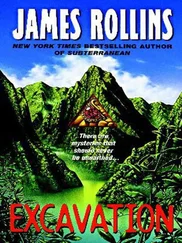His heart thundered in his chest. “Who’s there?”
He studied the door and the tiny observation window over the control station. No one answered. No one moved. Maybe it had been his imagination.
Slowly, he turned and continued walking toward the screw plate on the far side of the room. Already on edge, his nerves jangled warnings. His ears were keen to the smallest noises. All he heard was his own footsteps.
As he neared the far wall, a loud clang rang across the bay. He gasped with shock. With his heart now in his throat, he swung around. The bay’s hatch was closed. He watched the latches wheel tight.
“Hey!” he hollered. “I’m in here!”
He dropped the toolbox, pushed up his glasses and hurried across the bay. What if he got locked down here all night? The others were counting on him.
Halfway across, he heard a high-pitched hissing from overhead. He looked up in horror. He knew every inch of this place, every sound and wheeze of the great station. “Oh, God…no!”
The docking procedure had been engaged. The room was pressurizing.
He ran toward the door. He had to let someone know he was in here. Then movement caught his eye. Through the observation window, a head came into view. Cortez knew that face and its twisted, condescending smirk.
Spangler.
This was no accident. Cortez stumbled to a stop. Already, the pressure grew in his ears. Unchecked, it would build to match the outside depths — over a thousand pounds per square inch.
Cortez spun. Spangler must have been the one who had damaged the pump’s fuse — a trap to lure him down here. His only hope was to disable the remaining pumps’ engines. If he could remove the other three fuses…
He crossed toward the far wall and the abandoned toolbox. As he did, the pressure climbed in the room. It was getting hard to breathe. His vision narrowed. Gasping, he struggled onward.
Pain exploded in his head as his eardrums ruptured. He cried out, his hands flailing up, knocking his eyeglasses off. Blood ran down his neck.
And still the pressure built.
Stumbling, his vision dimmed; lights danced at the edges. Falling to his knees, he fought for breath. He collapsed to one hand, then another, as the pressure crushed him. Unable to breathe, he rolled to his side and fell. On his back, he was blind now, his eyes forced too deep into their bony sockets.
His fingers scrabbled at the floor, begging for mercy.
The large weight on his chest continued to grow. A flood of fire pained him as his ribs began to break, collapsing, ripping lungs that could no longer expand. And still the weight grew.
He quit struggling, releasing control. His wife, Maria, had given her life to the Neptune project before she died. It was somehow fitting that it should take his life, too.
Maria…honey…I love you.
Then at last, as if sighing out a final breath, his consciousness fled and darkness took him.
11:20 P.M.
Through the observation window, David stared out at the sprawled and broken body of the former research leader. He watched the man’s skull implode under the pressure, brain matter splattering out. As a diver, he had always known such a danger was faced by all who challenged the depths. But to witness it firsthand…
David turned away, swallowing back a twinge of queasiness. Horrible.
Rolfe stood by the control board. “Sir?”
“Flush this toilet.”
His second-in-command obeyed, flooding the bay.
August 9, 5:02 A.M.
USS Hickman, East China Sea
Admiral Houston stood on the stern deck of the destroyer, the USS Hickman . Dawn had yet to rise, but to the south, fires raged, lighting the entire horizon.
He had never seen the ocean burn.
The nuclear strikes had been clean and decisive, destroying missile and air support installations along the blockade’s front. Batan, Senkaku Shoto, Lu wan: unknown to most of the world, these tiny outlying islands would soon become synonymous with Nagasaki and Hiroshima.
Already, American forces were moving in to shatter the remaining blockade.
But not the Hickman . It was limping with the wounded back to the refuge of Okinawa. His right arm in a cast, Houston was counted among the injured. He had survived the sinking of the Gibraltar , escaping the ship just before the rain of missiles had torn her apart. Many had not. The dead and missing numbered in the thousands, including the C.O. of the ship and much of his command staff.
As he stood, he silently spoke their names…those he knew. There were so many more he did not.
“Sir, you shouldn’t be out here,” a lieutenant said softly at his side. The young Hispanic officer had been assigned as his aide. “We’re all supposed to be belowdecks.”
“Don’t worry. We’re far enough away by now.”
“The Captain—”
“Lieutenant,” he warned sternly.
“Yes, sir.” The young man fell silent, stepping back.
Houston felt a chill morning breeze slip through his loose flight jacket. With his arm in a sling, he couldn’t zip the jacket fully. He shivered against the cold. They would be reaching Naha on Okinawa within the hour, just as the sun rose. From there he was scheduled to ship back to the States.
Slowly, the fiery devastation sank beyond the horizon, becoming a fading glow. Dull booms occasionally echoed over the waters.
Houston finally turned his back. “I’m ready to go below,” he said tiredly.
The lieutenant nodded, offering an arm of support just as a klaxon blared. Both men froze. Radar warning. Incoming missile.
Then Houston heard it. A whistling roar.
The lieutenant grabbed his good arm, meaning to drag the admiral to the closest hatch.
He shook off the grip. “It’s heading away.”
As proof, the fiery trail arced high across the night sky, aiming north over the ship.
“An M-11,” Houston noted, moving to the starboard rail with the lieutenant in tow.
As they followed its course, another missile joined the flaming display…then another. The new rockets rose from the west, from China. Though coming from different directions, Houston could guess their target. Okinawa lay directly ahead. “Oh, God…”
“What is it?”
To the northeast new fireworks joined the show. A dozen thin flames streaked upward into the night, on intercept courses. The bevy of Patriot II missiles whistled skyward, like bottle rockets on the Fourth of July.
One of the Chinese missiles was struck a glancing blow. Its fiery arc became a tumbling fall, flaming out and disappearing. But the other two continued their course, vanishing over the dark horizon.
“What’s happening?” the lieutenant asked.
Houston just stared.
At first there was no sound. Just a flash of light, as if the sun itself had exploded beyond the horizon.
The lieutenant backed away.
A low sound flowed over the water, like thunder under the sea. At the horizon, the brilliant light coalesced down upon itself, forming a pair of glowing clouds, sitting at the edge of the world. Slowly, too slowly, they rolled skyward, pushed up atop fiery stalks. Brilliant hues glowed from the hearts of the caldrons: fiery oranges, magentas, dark roses.
Houston closed his eyes.
The blast wave, even from so far off, struck the Hickman like a hammer, burning Houston from the deck before even a last prayer could be uttered.
6:04 A.M., Nautilus
Dressed in an insulated dry suit, Jack climbed into the Nautilus as it bobbed in the small waves behind the stern of his ship. He wiggled himself down into the pilot’s seat and began running through one last systems check.
Читать дальше


